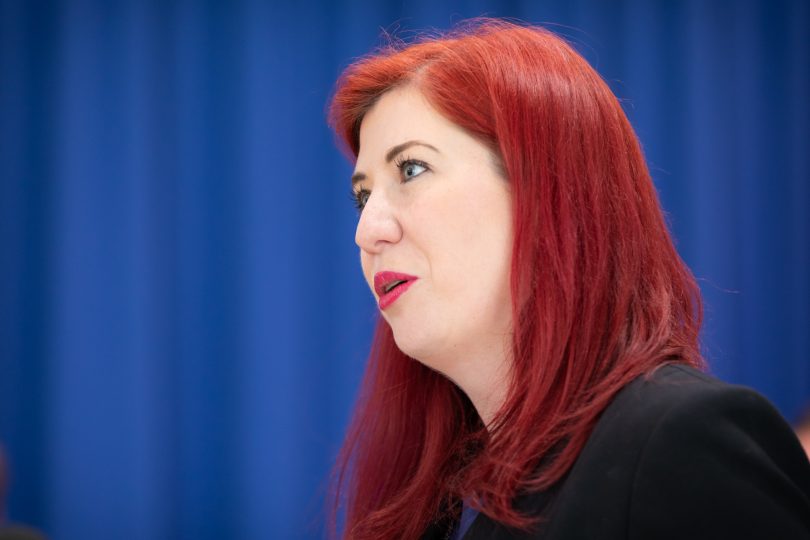
Human Rights Minister Tara Cheyne is leading the new charge against the Andrews Bill. Photo: Michelle Kroll.
With every passing year and as more states debate the issue of voluntary assisted dying and come to some resolution on how to legislate for it, the so-called Andrews Bill, specifically designed to thwart the ACT and Northern Territory’s bid to make their own laws on this issue, is showing its age.
Making a law to block any one thing is usually not a good idea, and in this case, its price was to, in effect, create two levels of democratic standards in Australia – one for the states and another for the territories.
In 2018, the Senate voted down a bid to revoke the legislation, and now the ACT and NT are joining forces to again lobby the Federal Government to overturn the law as the political landscape continues to change across the nation.
Human Rights Minister Tara Cheyne and the Northern Territory’s Attorney-General, Selena Uibo, have penned a letter to the federal Attorney-General, Christian Porter, calling for the restoration of the right to legislate on voluntary assisted dying.
And Opposition Leader Elizabeth Lee has spoken to the Prime Minister asking him to let the ACT make laws on voluntary assisted dying, marking a departure from previous Canberra Liberals positions.
It’s more than 20 years since conservative Liberal MP Kevin Andrews used federal legislation to overrule the territories, and any of the tissue-thin arguments about immature parliaments and social laboratories are surely in tatters.
His bill was a blunt instrument to achieve a particular outcome, but as the states such as Tasmania, Victoria and now Western Australia legislate on and others tackle what is understandably a complex and fraught issue, it is, as Chief Minister Andrew Barr has said, untenable to continue to withhold from Territorians the right to do so as well.
Whether one supports voluntary assisted dying or not, all Australians, wherever they live, should have the same political rights and the ability to debate and make laws as they see fit without sanction from the Commonwealth.
It is true that the ACT and NT are subject to section 122 of the Constitution under which the Commonwealth can remove some or all of the powers it grants to self-governing territories, but the Andrews Bill has been the only time it had resorted to specific legislation.
Self-government, which was imposed on the ACT, should not be conditional, and Canberrans should not be treated as second-class citizens in Australia’s democracy.
While it may suit opponents of voluntary assisted dying to continue to support the Andrews Bill as a bulwark at what they see is a slippery slope to euthanasia, the argument is not really about stopping it but about the rights of Canberrans to make their own laws, within the bounds of the Constitution like everybody else.
It is acknowledged that with opinion polls showing that 80 per cent of Canberrans support voluntary assisted dying, the likely outcome will be the very legislation opponents fear.
But they should not shy away from having the debate and their fellow citizens having the right to decide about the issue themselves and shaping laws that can offer appropriate safeguards.
The pandemic has also highlighted the difficulties of the ACT being an island within another jurisdiction, and while the ACT is proud to be a leader on social reform, it mostly respects the practicalities of lawmaking in a federation and prefers a collaborative approach to mitigate any cross-border issues.
At the rate legislation is being prepared and presented, the ACT and the NT will be left as the only jurisdictions without some sort of legal framework.
The prospect of one law for those in Queanbeyan and for those across the border on such a significant matter, where criminality will be at issue, is not a desirable one.
But for now, the anachronism of the Andrews Bill needs to be dealt with.
It would pay for the proponents of reform to stick to the core political arguments and not drag into the debate the divisive and emotional elements of voluntary assisted dying.
There will be time enough for that later.





















